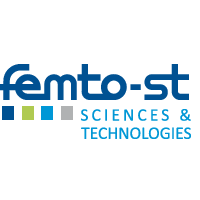Scientifical Description & Work-Packages
Scientific description of the project
The objective is to study and develop a method based on combinatorial algorithms, artificial intelligence and access to open and real-time data to enable a proof of concept (PoC) of an operational process for efficient declarations of individual or collective mobility requests, on-the-fly generation of multimodal carpooling itineraries (CovMul) and multi-actor remote management. The proposed solutions will take into account the value of environmental externalities and incentives for the actors. The innovation also lies in taking into account the system administration, Mobility Operators (MO) and Mobility Organizing Authorities (MOA), by proposing a dynamic observation of mobility, which integrates incentive elements for the actors through the pricing of environmental externalities (benefit linked to the reduction of emissions according to a reference carbon price) and the consideration of behavioral dimensions via nudges (influence of amenities provided by transport networks or awareness of climate issues). Analyses of the actors' behavior will be carried out with an audit/advice of the solutions deployed on the ground.
The aim is to combine the RO, AI, and IoT expertise of FEMTO-ST's DISC department, the economic and behavioral analysis skills of the CRESE laboratory, and the mobility observation of the THEMA laboratory. The goal, beyond the PoC, is to ultimately propose an operational system and a complete MaaS processing chain for multimodal carpooling integrated into a comprehensive public transportation offering. This project will be supported by other calls for structuring projects with a view to testing/protecting/transferring such MaaS services within the TIGA territory, cross-border, or other partners (a project with the Dakar ESP currently being submitted, an ERASMUS+ structuring project currently being submitted, an ANR project, Horizon, etc.).
The methodology implemented in this EUR-EIPHI project is structured around the following Work Packages (WPs).
WP1: Fundamental Research: IoT, RO, AI, Smart City and ITS, Mobility/Tracking, Organization & Prediction
This WP focuses on the modeling of the IT issues raised, the formalism of proposed solutions, their design, and their integration into a "next-generation" MaaS service and multimodal platform.
All members of the FEMTO-ST/DISC team are participating in this WP, led by Philippe Canalda, Hakim Mabed, and Oumaya Baala.
WP2: Economic and Behavioral Analysis of Shared and Decarbonized Mobility
This WP is led by Vincent Bertrand (CRESE, EDEN.i Network), Claire Papaix (Montpellier Business School, EDEN.i Network), and Igor Agbossou (THEMA).
WP3 Cybersecurity, IT Maturity Audit/Consulting for Accessibility and Transportation
Pascal Chatonnay and Delphine Martin will lead this WP and handle the audit-consulting aspect. Travel is essential information for understanding habits and behaviors, and as such, this information must be extremely protected.
François Spies and Hakim Mabed will handle the cybersecurity, virtualization, cloud, and embedded systems aspects.
WP4 Communication, Publication, Software/Patent Protection, Transfer, Training through Research, Service, Experimentation, Territoriality
All project stakeholders are participating in this WP. The software and patent protection component is planned for the completion of this project. Early on, the design of an Agile demonstrator should allow for a field experimentation phase and a study of economic policies, stimulated behaviors, and observed mobility.
WP5 Project Management
This WP focuses on the project management aspects. The people in charge of this task are Vincent Bertrand (CRESE), Igor Agbossou (THEMA), Hakim Mabed & Philippe Canalda (FEMTO-ST). Meetings between project leaders and members will be held regularly to monitor the project. Semi-annual project meetings will be held. Members of the extended consortium, the Future Vehicles Center of Excellence, the OMs or the AOMs will be invited to these meetings, in order to present the results obtained, and the future work to be implemented.

